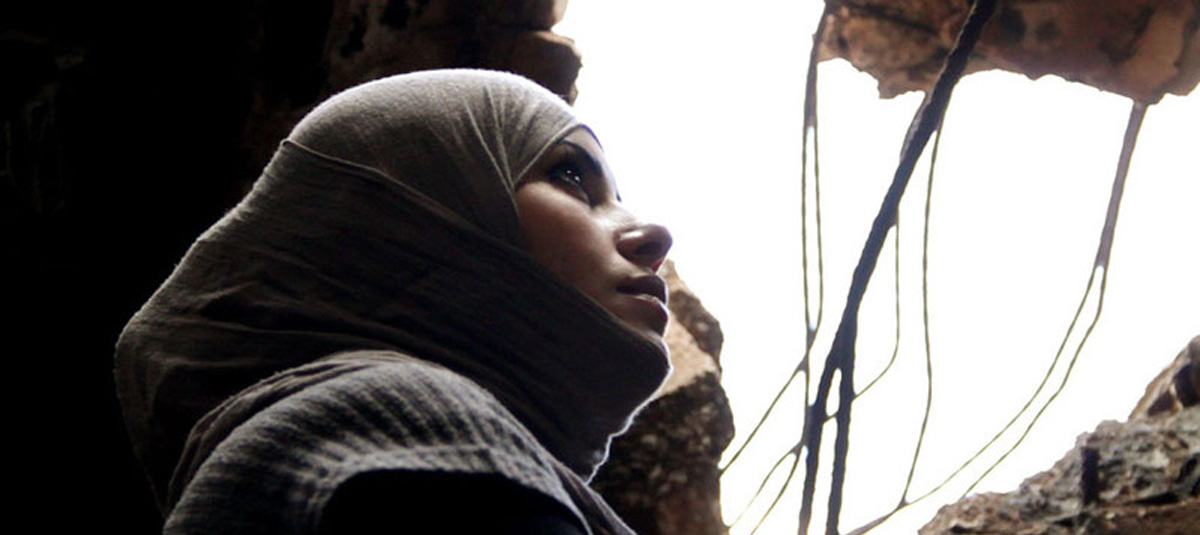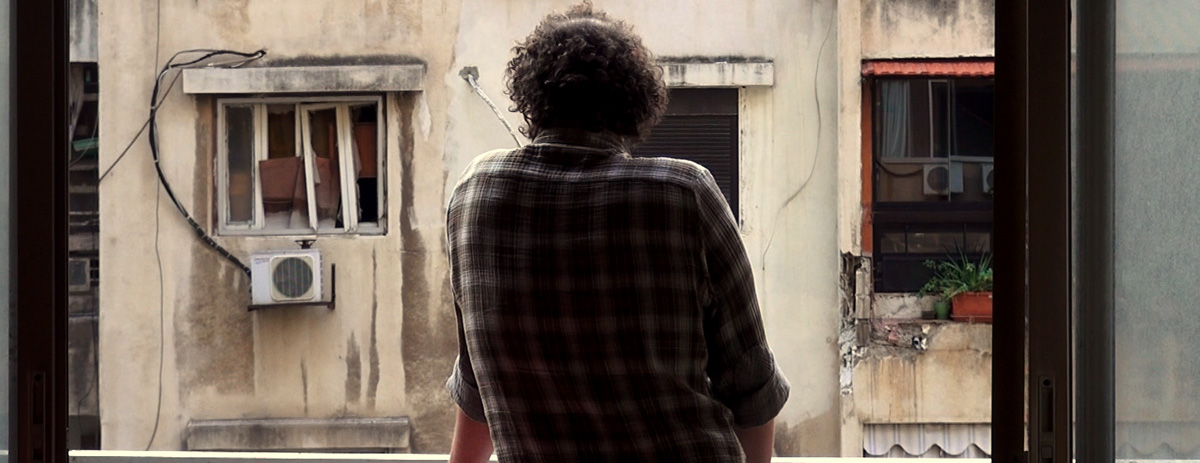Syrian filmmaker Liwaa Yazji discusses the dangers and inspirations she encountered whilst shooting her first documentary
“This ethical issue was crucial in the process of the project. It was such a dangerous thing for us all – especially inside Syria where I was shooting in areas which were under the regime’s control. This could have resulted in detention and imprisonment for any one of us.”
Q1/ Can you briefly introduce yourself and tell us why you became interested in working in film?
I am a Syrian filmmaker born in Moscow. I studied Theater Studies in Damascus, Syria and then went on to work in the fields of theater dramaturgy, playwriting, and screen writing. In 2009 I acted in ‘September Rain,’ a feature film by Syrian director Abdullatif Abdulhamid. Then in 2011 I went on to work as assistant director in ‘Windows of the Soul,’ a docudrama directed by Allyth Hajjo and Ammar Alani.
I published my first play ‘Here in the Park’ in 2012, and in 2013 I wrote the screen play of the TV drama series ‘The Brothers.’ Last year I published my first poetry book in Beirut, entitled ‘In Peace, we leave home,’ and a translation of Edward Bond`s play ‘Saved’ in Arabic. I also directed my first documentary film ‘Haunted’ in 2014, which will be screening at The Mosaic Rooms 22 April.
I am also a board member of Ettijahat-Independent Culture
Q2/ Your documentary Haunted (Maskoon) is about the Syrian people’s relationship with their homes during the war, what inspired you to make a film on this subject?
It started as a personal concern; the war was crawling to Damascus, the capital was full of internal refugees from other cities hit by its destruction. Wherever you went, whomever you spoke to, there was only one question: what do we do?
It was something we were not able to deny: the war was coming and we had to have an answer to the question: what do we do next? When our houses are destroyed what is left for us? Do we stay or do we leave? Do we stay until the last minute, or take the decision to leave before? We had seen what was happening in other cities, and we knew we were not excluded from the same destiny; doomed to the same fate sooner or later.
The issue of “home” was an issue for all of us – family, relatives, friends, refugees around me and those abroad in camps. There were dozens of photos and videos of wreckages and ruins on TVs, websites and mobile correspondence, haunting us every day.
So that is how I started thinking of the film; as a way to “archive” the sad, surreal and absurd stories of people abandoning their history, memories, identity and life – to throw themselves into the unknown in most cases. It started as an archive, to record the different conversations about, and variety of experiences of, the same situation. The majority of those who had to leave their houses did not even have the luxury to ask such questions, or to look for answers… they just found themselves out in the void running for their lives.
Q3/ For your documentary you conducted a series of interviews with people who had fled Syria, can you tell us about the process you went through to find interviewees and about any unexpected stories you uncovered in the process?
I spent a long period scouting before shooting, during this time I tried to archive and collect as many stories as I could, whether told orally or to the camera. That scouting period took place in Syria at first, later I realized that I needed to follow the journey of those stories to one of the refugees hosting countries: I chose Lebanon. There I scouted in various areas hosting Syrian refugee communities.
Another important factor I have to mention is the risk we were all taking in doing these interviews and shooting. This ethical issue was crucial in the process of the project. It was such a dangerous thing for us all – especially inside Syria where I was shooting in areas which were under the regime`s control. This could have resulted in detention and imprisonment for any one of us.
Even in the refugee camps it was so difficult to shoot due to the problems the hosting communities could cause if the refugees started to talk about how bad the conditions they were living in were! Or, the hosting communities were against the Syrian revolution altogether and allied against them.
Some of the stories I encountered during shooting were really surreal and unexpected. I came across an elderly couple who did not want to leave their house for the Free Army snipers, and so decided to live with them, sharing the same house! I also used to go back to film certain families only to find that they had already fled!
Whilst talking to the people who had already fled their homes I noticed that they all regretted one thing most: that they had not brought photographs with them. Photographs to register life as it was, the life they had left behind, to tell new generations about the old, dead or disappearing ones, or to tell their children about how they lived and who they were before. I used to tell people who were still in their houses and thinking of leaving ‘take photographs’.
The lady in the film living in Chatila Camp in Lebanon had to change her house while we were shooting and that was really unexpected and so important for the film.
Another unexpected thing also happened whilst I was shooting on the international road between Syria and Lebanon. It was highly forbidden to film there so I decided to try and film it alone. I was filming at the same time as driving the car. The result was that I had a bad car accident that was all captured on film!
Book now to see Haunted, Liwaa Yazji’s first feature documentary film, screening at The Mosaic Rooms 22 April 2015.

